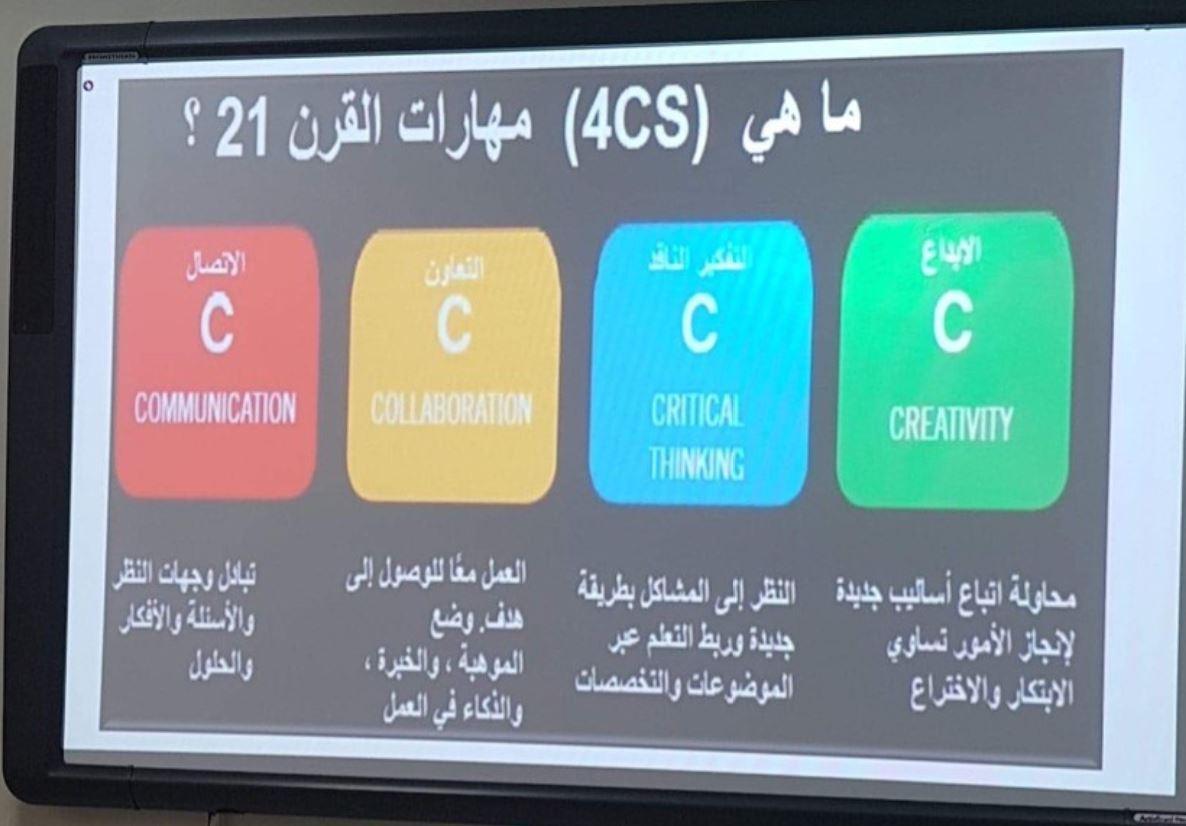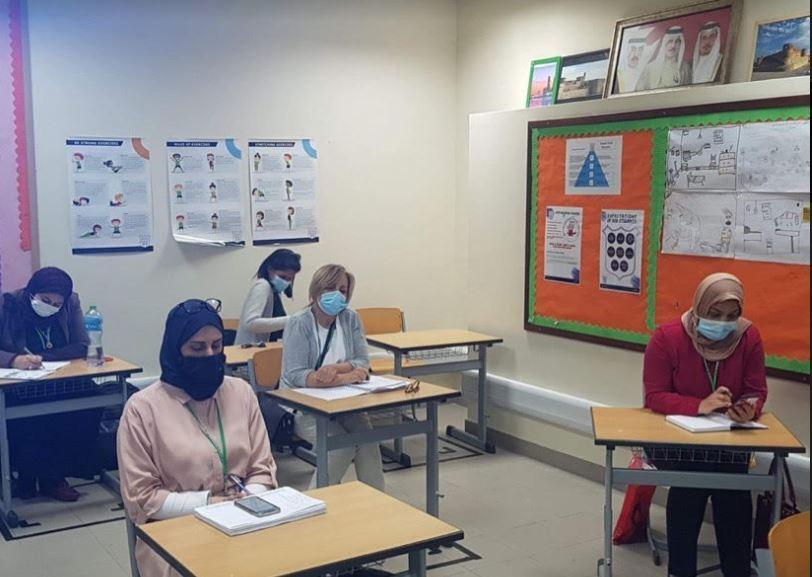
7 minute read
Introduction
Welcome to the first issue o CPD@TheBSB Journal,
The intention o this quarterly journal is to allow all staff insi ht and participation into school-wide pro essional development, to encoura e collaboration and sharin o outcomes or the benefit o urther school wide implementation/trials o concepts, promote new learnin , strate ies and share pro essional experiences and encoura e collaboration.
Advertisement
Despite the ne atives associated with this academic year, there are a number o positives which have arisen in re ard to chan in the world o pro essional development, notably in its accessibility. Teachers no lon er have to travel or poor tea and coffee, curled up buffets and awkward conversations but can be enriched rom their very own com ortable environment.
It is intended that as the journal rows or anically with spotli hts on departments, staff and external entries, a host o teachers and leaders eel enthused to collaborate, review and share the expertise which BSB teachers are reco nised or.
We invite you to take the opportunity to be part o the movement.
The current collaborators are lookin to the school-wide community to contribute, lead, share and develop the journal. Whether it be submittin an article, promotin a live webinar you wish to lead, ask or answer a community question, create a ocus or departments o subjects and interests; all your contributions are welcome.
Out o bravery, comes new ideas. The notion o pro essionals across school phases collaboratin to write an article, developin a short term study or those skilled quieter (and louder!) members o our school community is excitin . The CPD@BSB Journal is to be a product o the community. Its reflective, exploratory and orward thinkin articles and means o sharin these will enable its development and rowth.
Enjoy this first issue, it has been a pleasure to be part o its oundation and we look orward to the school community embracin , collaboratin , evaluatin and learnin to ether. With rate ul thanks to the admin team or their assistance in developin the journal and those pro essionals in our community who have shared articles or this first edition.
Letter from Mr Maguire
Professional development is more than just the courses that we attend. It is a culture and a reflection on the ethos of learning within any organisation. It is my pleasure to see that this inaugural Journal of Professional Development has come to fruition, and I am enormously proud of the achievements of the Professional Development Steering Group. BSB is alive with innovative teachers who collaborate to not only drive forward the development of our teaching but also to support each other. It is this culture that encourages staff to continue to experiment, secure in the knowledge that someone is there to guide them.
The School is proud that we embed a love of learning in all of our students and that this learning journey never ceases. A contributory factor in this ethos is that the BSB staff never stop learning and are always willing to develop and improve.
I hope that everyone associated with BSB enjoys this Journal of Professional Development as much as I have. Thank you to everyone that has made this excellent publication become a reality
John Maguire
Letters to the journal
Arabic Department organized a workshop entitled “Skills of the Twenty-First Century between Theory and Practice”, on Wednesday, December 2nd 2020, which dealt with important topics on the mechanism of applying these skills in the educational situation in particular, and working life in general. A group of teachers participated in the workshop from other departments ( science department and MFL department) also a number of Arabic teachers from the junior section. Mr. White gave the opening speech for this workshop.



CPD SPOTLIGHT: BOOKS
Every issue we highlight books from our CPD collection that either match the theme of the issue or contain information pertinent to current events. All of these are available in the Junior/Senior Library
RESEARCH-INFORMED
PRACTICE
(Jennifer Ludgate (Series: Bloomsbury CPD Library)
Research-informed practice has an ever-growing impact on teaching. It involves reading widely, and discussing and debating evidence from sources outside a teacher's own educational setting. When done well, it can greatly improve practice, although it can often be complex and time-consuming. Bloomsbury CPD Library: Research-Informed Practice provides simple, manageable strategies for busy classroom teachers to access and engage with research and use it to transform teaching.
Experienced teacher and research lead Jennifer Ludgate presents an invaluable guide to using research to inform teaching practice within a busy school term. Full of top tips, it's split into two sections – teach yourself and train others – to develop a research-informed culture across the whole school. This easy-to-follow title in the Bloomsbury CPD Library series features self-evaluation tasks for reviewing your own progress and includes ready-to-use training plans for 20 hours of CPD.
THE GOOGLE APPS
GUIDEBOOK
Kern Kelley
The Google Apps Guidebook is a set of student created lessons, activities and projects for educators to use in their classrooms. Each lesson connects with a component from the Google Apps for Education suite. The Guidebook takes teachers step by step through the entire process of introducing Google Apps to their students.
Each chapter introduces an engaging project that applies numerous aspects of each tool. Projects are differentiated for a variety of age ranges and can be adapted for most content areas. Upon completion, students will have a thorough understanding of the tools included with their Google account and a collection of cool projects they created!
CPD SPOTLIGHT: BOOKS
Every issue we highlight books from our CPD collection that either match the theme of the issue or contain information pertinent to current events. All of these are available in the Junior/Senior Library
METALITERACY
Thomas P. Mackey and Trudi E. Jacobson.
Today's learners communicate, create, and share information using a range of information technologies such as social media, blogs, microblogs, wikis, mobile devices and apps, virtual worlds, and MOOCs. In Metaliteracy, respected information literacy experts Mackey and Jacobson present a comprehensive structure for information literacy theory that builds on decades of practice while recognizing the knowledge required for an expansive and interactive information environment.
The concept of metaliteracy expands the scope of traditional information skills (determine, access, locate, understand, produce, and use information) to include the collaborative production and sharing of information in participatory digital environments (collaborate, produce, and share) prevalent in today's world. Combining theory and case studies, this cutting-edge approach to information literacy will help your students grasp an understanding of the critical thinking and reflection required to engage in technology spaces as savvy producers, collaborators, and sharers.
USING TECHNOLOGY IN THE
CLASSROOM
José Picardo (Series: Bloomsbury CPD library)
Jose Picardo's new book will consider how technology is used in schools and provide research-informed strategies to help improve teaching and learning by using technology effectively. It focuses on the need to train staff in the skills required to choose the right technology to have lasting impact and combines not only information about how technology can best work in the classroom, but also what makes great teaching and how technology can complement this.
The goal of the book is to help teachers integrate technology seamlessly into daily practice so that technology is used almost reflexively, effectively and without fuss. It also provides guidance on how to integrate this methodology and way of thinking across your school as well as training other teachers to successfully choose and use the best technology for their subject and their students. The book provides ten ready-to-use training plans, equating to a cost of just GBP2.30 per CPD session!
Staff article of special interest
I was recently recommended some online dyslexia training presented by Made By Dyslexia and it was truly one of the most pleasurable training experiences I’ve had. It led me on to a second webinar, and this one was by TextHelp which is a company offering assistive technology for students to aid dyslexic pupils (amongst others). It sparked my interest in assistive technology, and thought I would share some of the articles that I went on to find:
Christopher Preddy - Head of Music
Assessing assistive technology requirements in children with written language disorders. A decision tree to guide counseling
Assistive Technologies to Support Students with Dyslexia
Designing an Assistive Learning Aid for Writing Acquisition: A Challenge for Children with Dyslexia
An Assistive Technology Design Framework for ADHD
Assistive learning technologies for learners with ADHD and ASD
If you have any thoughts about any of these articles, or if you have any further reading around assistive technology we would love to hear from you.
Future live CPD
If you would like to offer a CPD session via zoom please get in touch with us
CPD from SLT - please click to watch the video





